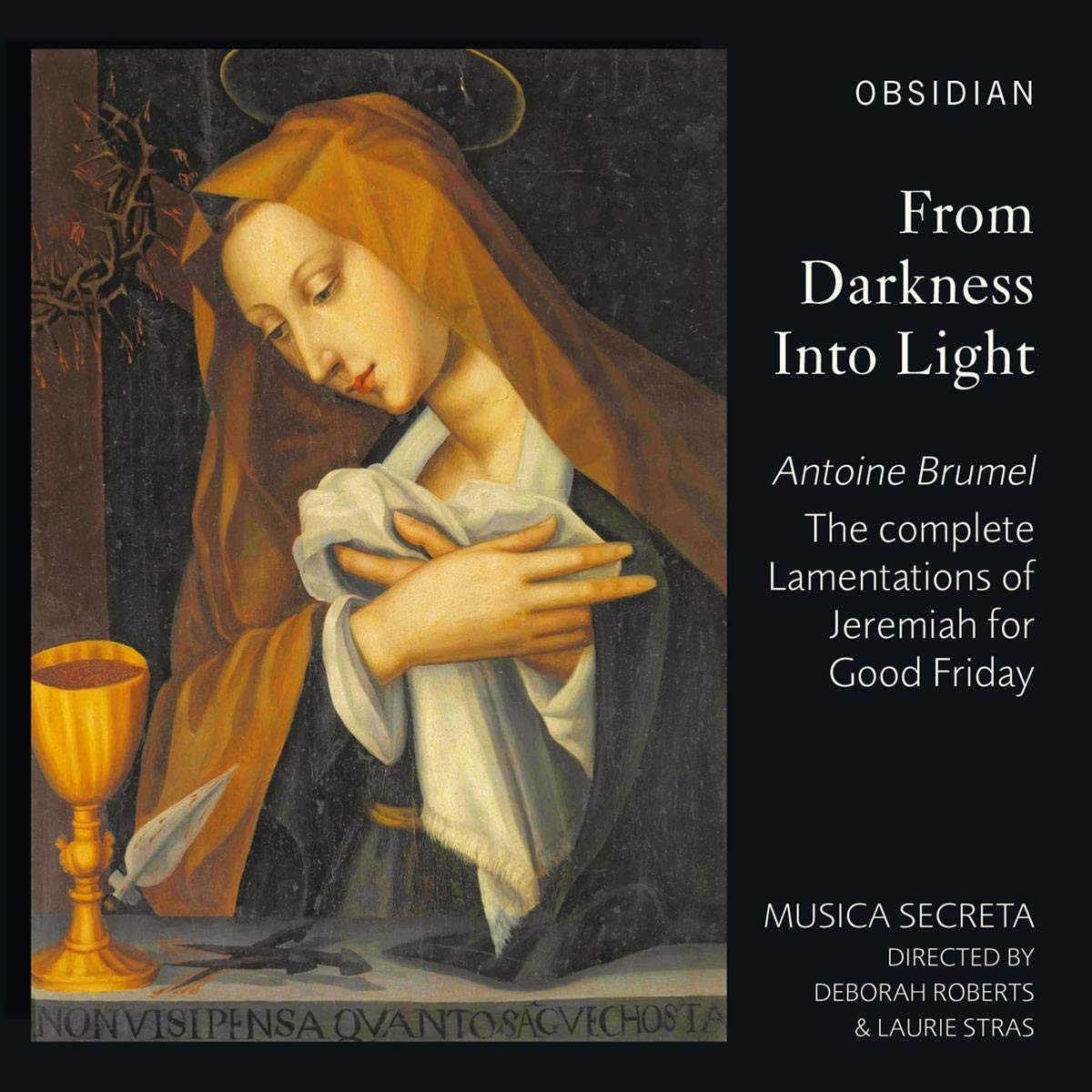Brumel: The complete Lamentations of Jeremiah for Good Friday
Musica Secreta, directed by Deborah Roberts & Laurie Stras
73:05
Obsidian CD719
+Compère, Josquin, Moro & anon
Performance and musicology come together on this disc with results that are exciting, rewarding, stimulating and reassuring. Previously only two sections of Brumel’s Lamentations, Heth and Caph plus the refrain “Jerusalem, convertere”, were known – or at least thought – to exist. Laurie Stras’s booklet notes describe how the rest of this substantial work had all the time been visible in plain sight but unrecognised, until it dawned on her recently that it had been staring us in the face “for centuries”. She also explains how she came to deduce that this newly rediscovered source for the complete work had been compiled for a nunnery, hence the performance on this disc by the female vocal ensemble Musica Secreta, supported authentically by a continuo of organ and viol “to sustain lower parts.”
This is an extraordinary work. Brumel varies his treatment of the initial Hebrew letters, sometimes setting them in short and concise phrases, sometimes stretching out to quasi-instrumental preludes or even short fantasias, often exploiting different scorings. This in microcosm is true of the entire work. Given Brumel’s dates, c. 1460-1515, there seem to be so many pre-echoes of later music. For instance, just to focus briefly on English music of subsequent generations, in Nun, the fourth section, there is a strikingly Tudor-sounding dissonance at “fulsa et stulta”, while on the final word “sempiternos” before the refrain “Jerusalem convertere”, there is a cadence which crops up again at the word “perditionem” in Tallis’s In jejunio et fletu. Add to this the glaring “English” cadence in Gimel, section 5, at the word “confregit”. And he exhibits an almost Byrdian variety and intensity in his responses to the recurrences of the refrain “Jerusalem convertere ad Dominum Deum tuum”, most profoundly at the end of the second section, Joth. Other aspects of this remarkable work similarly can be heard to echo down through the music of his Franco-Flemish successors.
Musica Secreta perform this music radiantly. Brumel’s vision is projected sensitively, whether ruminative or ecstatic. Every part is clearly audible, and the balance between them is ideal. The continuo is discreet but effective. The rest of the programme consists of eight works, five of them anonymous, from a manuscript that was compiled by the same scribe as the Brumel source, and which was intended for use in a particular nunnery, giving Laurie Stras the clue that this source for the complete Lamentations by Brumel might also be for the use of nuns. One of the pieces Sancta Maria succurre miseris is by the scribe Antonio Moro himself. Another is Josquin’s Recordare virgo Mater while the other named composer is Compere, represented by his slight Paranymphus salutat virginem. Perhaps the best of these works is a luminous anonymous altermatim setting of the Salve regina with which the disc appropriately concludes. The quality of the performance and of the music bring this revelatory disc to a satisfying close.
Richard Turbet
Click HERE to buy this CD on amazon.co.uk
